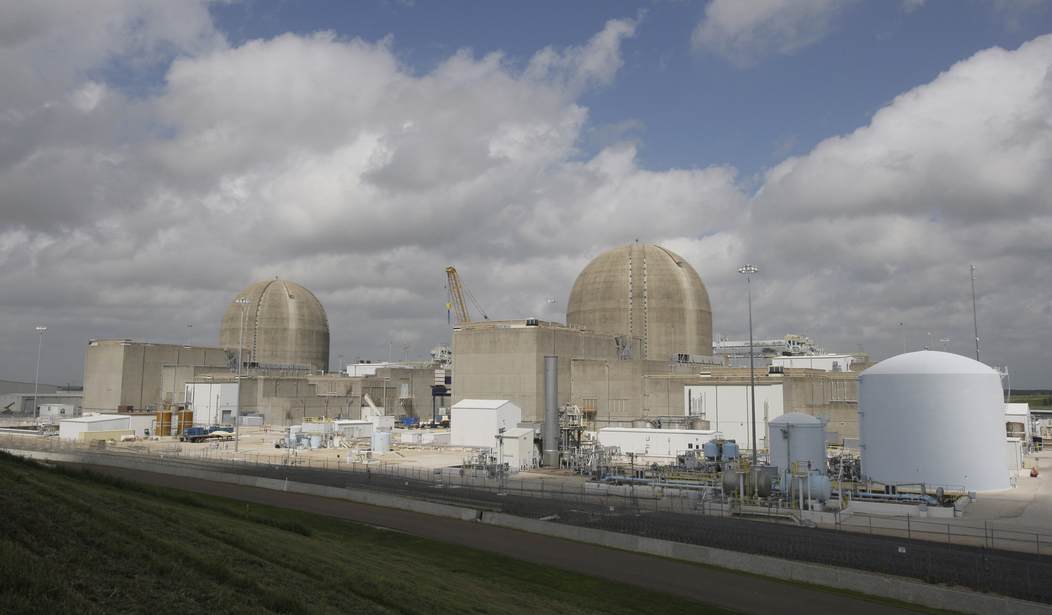We still have no way of knowing how and when the war in Ukraine will end, but it will have to stop somehow sooner or later. When that happens the rest of the world will need to look in the mirror and see what, if anything, we have learned from this debacle. At the journal Nature, French energy researcher Nicolas Mazzucchi is getting a head start on that process by pointing out a major if underreported factor in the early days of the invasion and the sanctions that significantly hindered much of Europe’s response. He notes that France was among the first to declare a ban on imports of Russian oil and natural gas to put the squeeze on their economy. But other nations were unable to do so and some expect to continue buying Russian oil (and funding its war in Ukraine in the process) at least through the end of the year because they had no other way to keep the lights on. How did France manage to get out in front on this issue? They largely converted to nuclear power over the past few decades and were not beholden to Russia in that fashion.
Last month, after weeks of negotiations, European Union leaders agreed to ban 90% of Russian oil imports by 2023. Until then, Russia will be able to continue to sell millions of barrels of oil a day to the EU, with some of the proceeds continuing to fund the war. Reliance on this fuel delayed a dignified, united condemnation of the invasion of Ukraine, and continues to interfere with the EU’s response.
There is a lesson in this for both the rest of Europe and the rest of the world: independence from Russian energy is the way to avoid another Ukraine.
France — where I live and work as an energy researcher at the Foundation for Strategic Research in Paris — was unusual among EU nations in calling for speedy, firm action. Although a now-concluded electoral campaign meant that French President Emmanuel Macron took a particularly tough stance on Russia, France’s relative independence of oil and gas certainly made this easier.
France now generates 70% of its electricity using nuclear power. They are far and away the global leaders in this regard. Technically, the United States generates more nuclear energy than France (by roughly 30 gigawatts per year), but we use a vastly larger amount of electricity than they do. The rest of their energy comes from a combination of wind, natural gas, and liquid fuels.
That fact allowed France to quickly remove itself from the Russian market for exported energy. The other nations that were unable to do so continue to pump cash into the Russian war machine and will do so for some time to come. This should serve as an example to the rest of Europe, but we need to be learning from this episode as well. The United States produces a respectable amount of electricity through nuclear energy, but the vast majority comes from Natural gas and coal. There are so many locations where new nuclear plants could be established in America – particularly the new small module reactors – that we could easily surpass France if we weren’t still so “squeamish” about it. (That’s the word Mazzucchi used to describe the reluctance of many countries to expand their nuclear power footprint.)
But building new nuclear plants takes a long time and requires significant investments. That doesn’t simply happen overnight and we’re facing a crisis in energy right now. Wind and solar energy still only contribute less than 12% of America’s total electrical generation capability and even the most optimistic estimates don’t see that figure rising above 30% by 2050. The only viable alternative during this type of transitional period is the same one we’ve had all along. And it’s sitting right under our feet. We’re going to need to continue to rely on oil for quite some time, no matter how angry it makes the environmentalists, though we should start building more nuclear plants starting yesterday.
But if we refuse to return to full oil production on the domestic front, our options are severely limited. Joe Biden has already tried begging Venezuela for oil and is willing to turn the other cheek with Saudi Arabia to get them to boost production. But even French President Macron has felt compelled to remind the American president that some of the worlds largest sources of oil and gas are right here in North America.
This is a crisis of our own creation. Russia didn’t cause this situation, but the invasion of Ukraine certainly proved to be a reminder of how fragile our energy grid is and how quickly things can go south when there is a significant disruption in the energy supply chain. Only a few years ago the United States was a net energy exporter and a world leader in oil and natural gas production. Now that lead has vanished and we are once again forced to go shopping for oil from countries that don’t really like us very much. (Although most of them still like our money.) We need a sane energy policy and we need to begin moving in that direction immediately.








Join the conversation as a VIP Member